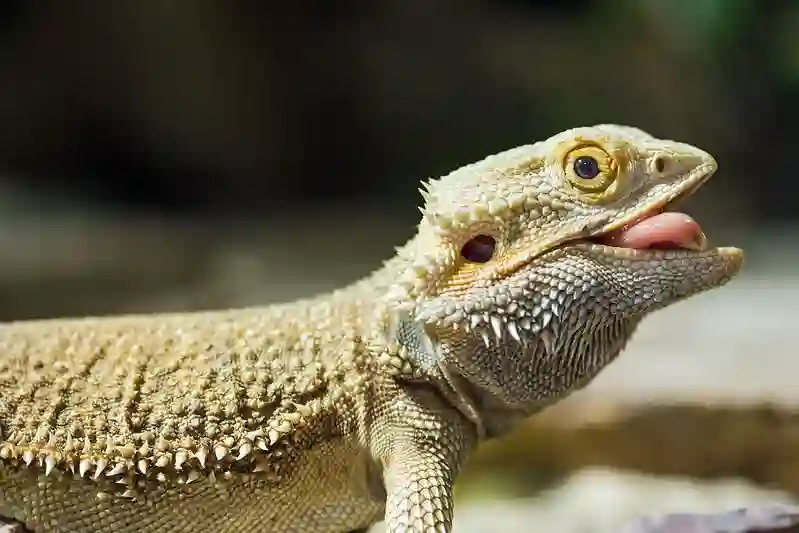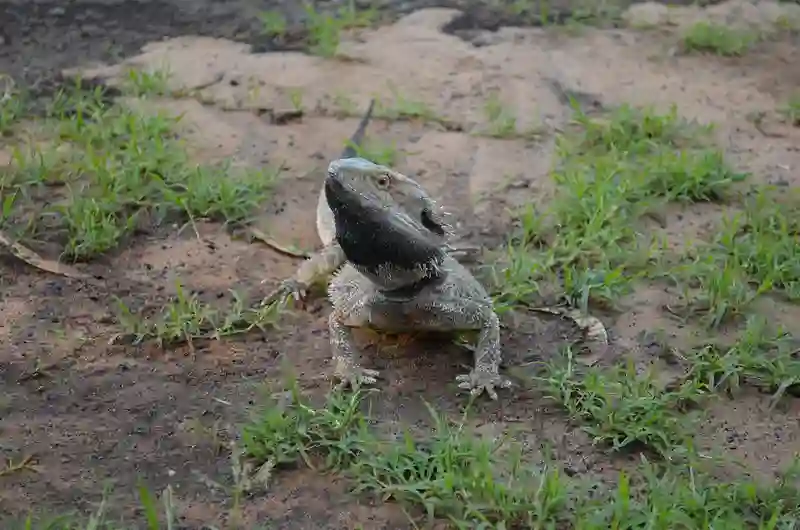Yes, bearded dragons can eat super worms, but only in moderation as a treat. Superworms are high in fat and should not be given to baby bearded dragons as they pose a risk of gut impaction.
While they are safe for healthy adult bearded dragons, they are not considered a great staple insect.
It is important to provide a varied diet that includes other insects and vegetables to ensure that your bearded dragon is getting all the necessary nutrients.
Nutritional Benefits Of Superworms For Bearded Dragons

Bearded dragons are omnivorous reptiles that require a balanced diet consisting of both plant and animal matter.
Superworms, the larvae of the darkling beetle, have become a popular feeder option for bearded dragon owners due to their availability and high protein content.
It is important to consider the nutritional benefits and drawbacks of feeding superworms to bearded dragons.
Superworms range in size from 1-2 inches in length, making them a suitable feeder option for juvenile and adult bearded dragons.
They can be easily gut loaded with nutrient-rich foods such as fruits and vegetables to increase their nutritional value.
Superworms have a higher protein content than most other feeder insects commonly fed to bearded dragons, providing an excellent source of essential amino acids.
It is recommended to feed super worms as part of a varied diet that includes other feeder options such as crickets, mealworms, and dubia roaches.
Are There Any Risks Associated With Feeding Superworms To Bearded Dragons?
Although super worms can provide some nutritional benefits to bearded dragons, there are also potential risks associated with feeding them to these reptiles.
One significant concern is digestive issues that may result from consuming too many super worms or not properly preparing them for consumption.
The exoskeleton of the super worms may be difficult for bearded dragons to digest, leading to blockages or impaction in their digestive tract.
Another risk associated with feeding super worms is the potential for choking hazards.
Bearded dragons may try to swallow whole super worms, which can become lodged in their throat or cause other respiratory issues.
Feeding life super worms may increase the risk of parasite transmission to bearded dragons.
It is important to properly clean and gut-load (feed) super worms before offering them as a food source.
Overfeeding bearded dragons with super worms can also lead to nutrient imbalances and other health problems.
While they do contain beneficial nutrients, such as protein and fat, too many super worms in a bearded dragon’s diet can throw off the balance of vitamins and minerals they require for optimal health.
It is important for owners to carefully monitor their pet’s intake of all types of food and avoid overfeeding them with any one item, including super worms.
Owners should always supervise their bearded dragons while they are eating and ensure that any food items offered are appropriately sized and prepared.
With proper care and attention, incorporating occasional servings of properly prepared super worms into a balanced diet can offer some nutritional benefits without posing significant risks to bearded dragons’ health.
How Often Superworms Should Be Offered To Bearded Dragons?
Feeding frequency is an essential aspect of ensuring that bearded dragons receive adequate nutrition from their diet.
Superworms are a popular food item for these reptiles, but it is important to offer them in moderation.
Overfeeding super worms can lead to an imbalance in the bearded dragon’s diet and result in excessive protein intake, leading to digestive health issues and weight management problems.
To maintain a healthy balance in a bearded dragon’s diet, super worms should only be offered as occasional treats rather than a staple food item.
A feeding frequency of once or twice a week is sufficient for adult bearded dragons.
Juvenile dragons may require more frequent feedings due to their higher metabolic rate.
It is still important to limit the number of super worms offered.
How To Feed Them Superworms?
Superworms are a great addition to a bearded dragon’s diet because they are high in protein and easy to digest.
It is important to follow proper feeding techniques when serving super worms to your pet.
One recommended method is to gut-load the worms by feeding them nutrient-rich foods such as carrots, sweet potatoes, or leafy greens before serving them to your bearded dragon.
This ensures that your pet receives the necessary nutrients from the worms.
Serving Size, Preparation Methods, Frequency, and Variety of Options.
When feeding super worms to your bearded dragon, it is important to serve an appropriate amount based on their size and age.
For adult dragons, 2-3 worms per feeding session should suffice while younger dragons may require fewer worms.
Superworms can be served alive or dead depending on preference but it is recommended that they are dusted with calcium powder before serving.
Feeding frequency should not exceed twice a week as overfeeding can lead to obesity and other health issues.
Variety options such as rotating super worms with other insects like crickets or dubia roaches can provide a more balanced diet for your pet.
By following these proper feeding techniques and guidelines for serving size, preparation methods, frequency, and various options when feeding super worms to your bearded dragon you can ensure that they receive the necessary nutrition without compromising their health.
How To Store Superworms Properly For Your Beardie?
Properly storing super worms for your bearded dragon can be a crucial factor in ensuring their health and well-being.
Temperature control is important as super worms are sensitive to extreme temperatures. They need to be kept in a cool, dry place with a temperature range between 70-80°F.
If the temperature exceeds this range, the worms may suffer from dehydration or death.
When it comes to container options, there are various choices available that can house different quantities of super worms.
Plastic containers are a popular option as they are easy to clean and maintain.
It is important to ensure that the container has ventilation holes to prevent mold growth or suffocation of the worms.
Feeder separation is also crucial when storing super worms as they can easily eat each other if not separated properly.
A feeding schedule should be established and adhered to so that the worms receive proper nutrition and hydration.
Moisture levels should also be monitored as too much moisture can lead to bacterial growth while too little moisture can cause dehydration.
